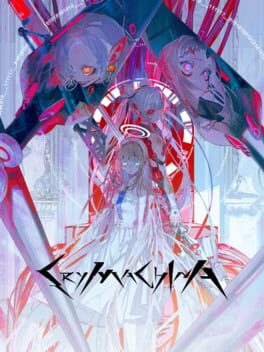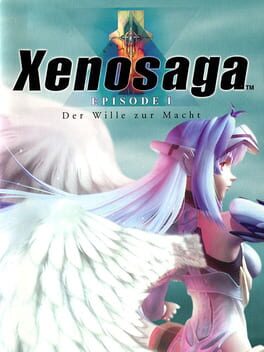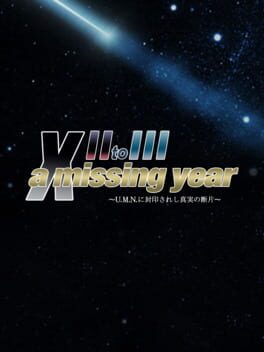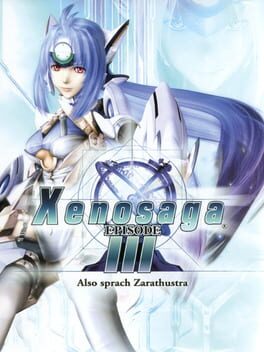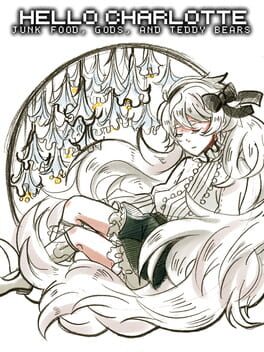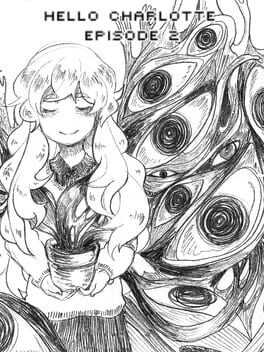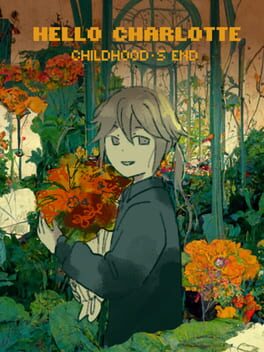kisetsunai
18 reviews liked by kisetsunai
Persona 3 Reload
2024
On one hand Reload is a competent remake of the original game. Faithful most of the time, but expands and improves on combat and surrounding systems where appropriate.
On another, however, this 'faithfulness' backfires if you already familiar with either versions of P3. These improvements, are, while welcome, but simply not enough to make the game worth the time. Not only does it barely competes with Persona 5 in terms of gameplay, which is an 8 year old game at this point, but it even misses whole campaigns from P3Fes and P3Portable, which is straight up unforgivable.
A good remake of a good game if you never played it. Not that important to play if you did.
On another, however, this 'faithfulness' backfires if you already familiar with either versions of P3. These improvements, are, while welcome, but simply not enough to make the game worth the time. Not only does it barely competes with Persona 5 in terms of gameplay, which is an 8 year old game at this point, but it even misses whole campaigns from P3Fes and P3Portable, which is straight up unforgivable.
A good remake of a good game if you never played it. Not that important to play if you did.
Crymachina
2023
It's not a very well made game in terms of game mechanics and game design, but on "art" side it's wonderful. I absolutely adore it's aesthetics, story concepts, themes, music and characters designs. Even through I don't think the scenario of the story itself and it's structure is very good or entertaining, the characters and themes make it worth a playthrough. You can tell developers and artists put heart and soul into this, despite all the downsides. Voice acting is also delightfully splendid.
Xenogears
1998
First time I heard about Xenogears and its narrative’s incredible reputation was sometime around ten years ago. I tried to play it not long after, but my inexperience with JRPGs at the time and Xenogears’ unreliable special ability leveling mechanic failed me and I didn’t progress far. All that time since then I kept thinking about this game and how cool, deep, and entrancing its story must be. I adored its aesthetics. Now I have finally completed it. Has it lived up to its unfathomable reputation?
Yes! Yes, it did. Well, I probably wouldn't call it the one and only best, most definitive story to ever exist in the form of a videogame, but it surely is one of the most interesting and grand. I loved its sense of mystique, a world drenched in thousands of years of sinister history, a slowly unraveling, heavely foreshadowed story about fantastical concepts grander than the universe, but still about human condition at their core. I loved the way characters are reflective about themselves, and how their flaws and dilemmas are expressed particularly well.
It’s not all ideal of course. Most compelling characters are the main duo - Fei and Elly. Citan and Bart are also good, although have way less depth. And all other characters feel severely underdeveloped compared to the aforementioned four. They still have cool things going for them - I especially enjoyed the church arc with Billy, and the concept of Emeralda is interesting - but their involvement in the story is almost nonexistent.
Story is also feels a little uneven in its quality. Many bits like battle arena in Nortune (FUCK SEWERS) or Shevat are interesting from worldbuilding standpoint, but feel unneeded otherwise. I guess most of this comes down to the fact that some characters’ stories - like with Rico in Nortune or Maria in Shevat - are a lot worse than others.
Second disc is a pretty big imperfection, no way around this. But it didn’t grate my opinion too much. Honestly at that point in the story I even appreciated that it became more straightforward and stuck to storylines that mattered most. It’s not the ideal way around things, but considering the game’s overflowing storytelling ambition - it was the best one. Honestly I think even if Takahashi’s team had time to make a full proper part of the game out of disc 2 - it would crumble under its own weight, because it just has way too many events for one game for it to be paced in a fulfilling way. First disc already had slight problems with focusing on what matters most, and, strangely enough, disc 2 cuts gave the story a much needed focus, even if at the expense of other things.
Gameplay is admittedly barebones and rather boring, but I think the game understands that and doesn't let the player spend too much time fighting enemies except for a couple annoying dungeons like the final one or the fucking sewers.
Yes! Yes, it did. Well, I probably wouldn't call it the one and only best, most definitive story to ever exist in the form of a videogame, but it surely is one of the most interesting and grand. I loved its sense of mystique, a world drenched in thousands of years of sinister history, a slowly unraveling, heavely foreshadowed story about fantastical concepts grander than the universe, but still about human condition at their core. I loved the way characters are reflective about themselves, and how their flaws and dilemmas are expressed particularly well.
It’s not all ideal of course. Most compelling characters are the main duo - Fei and Elly. Citan and Bart are also good, although have way less depth. And all other characters feel severely underdeveloped compared to the aforementioned four. They still have cool things going for them - I especially enjoyed the church arc with Billy, and the concept of Emeralda is interesting - but their involvement in the story is almost nonexistent.
Story is also feels a little uneven in its quality. Many bits like battle arena in Nortune (FUCK SEWERS) or Shevat are interesting from worldbuilding standpoint, but feel unneeded otherwise. I guess most of this comes down to the fact that some characters’ stories - like with Rico in Nortune or Maria in Shevat - are a lot worse than others.
Second disc is a pretty big imperfection, no way around this. But it didn’t grate my opinion too much. Honestly at that point in the story I even appreciated that it became more straightforward and stuck to storylines that mattered most. It’s not the ideal way around things, but considering the game’s overflowing storytelling ambition - it was the best one. Honestly I think even if Takahashi’s team had time to make a full proper part of the game out of disc 2 - it would crumble under its own weight, because it just has way too many events for one game for it to be paced in a fulfilling way. First disc already had slight problems with focusing on what matters most, and, strangely enough, disc 2 cuts gave the story a much needed focus, even if at the expense of other things.
Gameplay is admittedly barebones and rather boring, but I think the game understands that and doesn't let the player spend too much time fighting enemies except for a couple annoying dungeons like the final one or the fucking sewers.
I really want to love this game, but god, is this a hard game to love.
I adore Xenosaga’s futuristic sci-fi space opera aesthetics. The slick, clean, artificial look of the game's environments, highlighting how far into the future this game takes place - which is reflected in an interesting way in the game’s treasure hunting system, where constructional nanomachines bugged out and accidentally created a bunch of closed rooms throughout levels with treasures in them. Mechs, ranging from a little bulky and awkward-looking mass produced military mechs to slender and sophisticated mechs of a private developer. Array of space ships with imaginative designs - one of them functioning both as a space battlecruiser and as a governmental skyscraper amid a lake on a space stanchion looking a little like a lotus flower.
Story in Xenosaga is very slow burn in nature, but that allows it to present a world lush with detail and focus on worldbuilding, slowly immersing the player into it. Characters are pretty cool and represent various aspects of the sci-fi setting - there’s cyborg made with old technologies, secret top of the line android, artificially created humans, and nature of their existence is relevant to their stories.
However, that slow burn nature is a double-edged sword - a lived-in feel to the world comes together with an incredibly slow pace. This game feels like a short prologue to an epic RPG story, except it runs for the whole duration of an average RPG - around 45 hours. Yes, this game is a first part in a franchise which also got cut short, but regardless of any circumstances, any story that spans such a long time just HAS to have a proper substance to it, and this game unfortunately doesn't. There’s no proper narrative arc, most characters get very little development, and it feels like nothing of importance happens. This game is all setup with no payoff. The way this game tried to up the stakes and epicness in the final dungeon also felt very unearned because of that. It was unnecessary and left a bad taste. The story that is being set up seems intriguing and interesting, and the payoff in the latter games is interesting enough, but in this game there is little satisfaction from it to be found.
Gameplay is somewhat okay. It’s a colossal improvement coming from Xenogears, but overall kind of mediocre. Base mechanics are alright, but the game feels like it’s lacking focus and a concrete vision on what experience its mechanics mean to convey to the player. It has tons of them, but interacting with them is a little confusing and not very fulfilling. The UI is also exceedingly cumbersome. If I have to manage equippable skills which are extracted from armor and accesories with a UI this bad once more in my life I’m gonna fucking gnosify.
Decision to leave exploration gameplay without music wasn't good. I get and like the idea of using silence and sound effects instead to highlight the cold and distant nature of Saga’s setting, but this idea wasn’t executed with a necessary quality. It just comes off as unfinished, and not as a stylistic choice. Combat music was also a bit lackluster considering it’s just ONE track for the whole game. Music was a letdown coming from Gears.
But everything being said, I do love this game despite its many imperfections. Also, KOS-MOS is hot. Seriously, she’s now one of my favorite female characters in animanga sphere, even though writing in this game really lets her down.
I adore Xenosaga’s futuristic sci-fi space opera aesthetics. The slick, clean, artificial look of the game's environments, highlighting how far into the future this game takes place - which is reflected in an interesting way in the game’s treasure hunting system, where constructional nanomachines bugged out and accidentally created a bunch of closed rooms throughout levels with treasures in them. Mechs, ranging from a little bulky and awkward-looking mass produced military mechs to slender and sophisticated mechs of a private developer. Array of space ships with imaginative designs - one of them functioning both as a space battlecruiser and as a governmental skyscraper amid a lake on a space stanchion looking a little like a lotus flower.
Story in Xenosaga is very slow burn in nature, but that allows it to present a world lush with detail and focus on worldbuilding, slowly immersing the player into it. Characters are pretty cool and represent various aspects of the sci-fi setting - there’s cyborg made with old technologies, secret top of the line android, artificially created humans, and nature of their existence is relevant to their stories.
However, that slow burn nature is a double-edged sword - a lived-in feel to the world comes together with an incredibly slow pace. This game feels like a short prologue to an epic RPG story, except it runs for the whole duration of an average RPG - around 45 hours. Yes, this game is a first part in a franchise which also got cut short, but regardless of any circumstances, any story that spans such a long time just HAS to have a proper substance to it, and this game unfortunately doesn't. There’s no proper narrative arc, most characters get very little development, and it feels like nothing of importance happens. This game is all setup with no payoff. The way this game tried to up the stakes and epicness in the final dungeon also felt very unearned because of that. It was unnecessary and left a bad taste. The story that is being set up seems intriguing and interesting, and the payoff in the latter games is interesting enough, but in this game there is little satisfaction from it to be found.
Gameplay is somewhat okay. It’s a colossal improvement coming from Xenogears, but overall kind of mediocre. Base mechanics are alright, but the game feels like it’s lacking focus and a concrete vision on what experience its mechanics mean to convey to the player. It has tons of them, but interacting with them is a little confusing and not very fulfilling. The UI is also exceedingly cumbersome. If I have to manage equippable skills which are extracted from armor and accesories with a UI this bad once more in my life I’m gonna fucking gnosify.
Decision to leave exploration gameplay without music wasn't good. I get and like the idea of using silence and sound effects instead to highlight the cold and distant nature of Saga’s setting, but this idea wasn’t executed with a necessary quality. It just comes off as unfinished, and not as a stylistic choice. Combat music was also a bit lackluster considering it’s just ONE track for the whole game. Music was a letdown coming from Gears.
But everything being said, I do love this game despite its many imperfections. Also, KOS-MOS is hot. Seriously, she’s now one of my favorite female characters in animanga sphere, even though writing in this game really lets her down.
To get a game this good as a climax for a deeply flawed series that you love despite everything sure is a fascinating feeling.
Xenosaga 3 really is a very powerful conclusion to the series, regardless of all the problems with its development. All the previous grievances I had with Saga's story didn't go anywhere of course - damage from problems with shoddy pacing and lack of informativeness and coherence that former Saga games had can’t be undone - but the third installment handles that the best, has the most dynamic pacing and simply the best scenario.
It still feels like a compromise, unfortunately - by the end of the game it seems as if the story stops even trying to naturally present the player with its convoluted sci-fi concepts, and just hands the player a summary of a thematic meaning of the unfolding events. And there are enough storylines that are given minimal attention. But it all works pretty effectively nonetheless, and given the development problems this series suffered it was really the best choice. However it still feels a little weird considering how much attention this series has paid to its intricate sci-fi ideas before.
For a story with such emphasis on mystique and seriousness the themes and their delivery at the end comes off very sentimental and straightforward, which feels a little jarring. Like many works with such a positive life-affirming theme that it almost comes off as naive, I think this story lacks a certain edge, an unhealthy dose of pessimism and emotional intensity to let me know that the writers really mean their message of holding on to life and trying your best despite all the troubles. Though admittedly this game probably has some form of a dialogue with Nietzsche’s “Thus Spoke Zarathustra” - a game’s inspiration - and I’m not familiar with it beyond skimming Wikipedia’s article about the Eternal Recurrence, so I may not grasp the story to its full extent.
But I don’t hold it against the game. All I said in the former paragraph is but a small remark, and overall the finale of this story was spectacular and emotional. Final scene with KOS-MOS is burned into my brain forever.
Combat is the least complex in the series, but it's also the best. This game is a good illustration that gameplay mechanics that are easy to interact with and feel good are much more important than complexity and uniqueness.
It’s a shame we will never see other planned chapters of this story, even though this one is finished. Also, KOS-MOS and T-elos are very hot.
Xenosaga 3 really is a very powerful conclusion to the series, regardless of all the problems with its development. All the previous grievances I had with Saga's story didn't go anywhere of course - damage from problems with shoddy pacing and lack of informativeness and coherence that former Saga games had can’t be undone - but the third installment handles that the best, has the most dynamic pacing and simply the best scenario.
It still feels like a compromise, unfortunately - by the end of the game it seems as if the story stops even trying to naturally present the player with its convoluted sci-fi concepts, and just hands the player a summary of a thematic meaning of the unfolding events. And there are enough storylines that are given minimal attention. But it all works pretty effectively nonetheless, and given the development problems this series suffered it was really the best choice. However it still feels a little weird considering how much attention this series has paid to its intricate sci-fi ideas before.
For a story with such emphasis on mystique and seriousness the themes and their delivery at the end comes off very sentimental and straightforward, which feels a little jarring. Like many works with such a positive life-affirming theme that it almost comes off as naive, I think this story lacks a certain edge, an unhealthy dose of pessimism and emotional intensity to let me know that the writers really mean their message of holding on to life and trying your best despite all the troubles. Though admittedly this game probably has some form of a dialogue with Nietzsche’s “Thus Spoke Zarathustra” - a game’s inspiration - and I’m not familiar with it beyond skimming Wikipedia’s article about the Eternal Recurrence, so I may not grasp the story to its full extent.
But I don’t hold it against the game. All I said in the former paragraph is but a small remark, and overall the finale of this story was spectacular and emotional. Final scene with KOS-MOS is burned into my brain forever.
Combat is the least complex in the series, but it's also the best. This game is a good illustration that gameplay mechanics that are easy to interact with and feel good are much more important than complexity and uniqueness.
It’s a shame we will never see other planned chapters of this story, even though this one is finished. Also, KOS-MOS and T-elos are very hot.
Has really cool vibes and striking visual style, but ultimately I found it to be shallow. Narrative feels like quirky, edgy randomness for randomness sake, without a clearly defined characters, theme or a point through most of the storyline. There is an idea behind it, apparently, and I think I quite like it. I like the concept of a whole story and its world being a surreal mirror or a character's psyche - but in this state it feels like an ineffective cliché, because aforementioned fixation on edgy randomness prevents these ideas from saying anything meaningful, or form a compelling narrative experience.
And gameplay consists of obnoxious puzzles with instant death traps. It was not interesting to explore this game's world.
But I really do like the vibes.
And gameplay consists of obnoxious puzzles with instant death traps. It was not interesting to explore this game's world.
But I really do like the vibes.
I liked this game a lot more than EP1. Story has a little different style - it’s a lot more structured, less random, with a relatively clear theme this time around. Just like with the first episode, I like the vibes very much, and a more structured narrative is a welcomed change. However, I still find writing mostly weak - while having a more structured story is good, its themes are kinda banal. I liked to listen to this story, but I didn’t find the execution of its themes particularly striking.
Also this game has a battle system in school named “SOCIALIZATION”, where you need to defeat mentally stricken students with attempts at communication. Or blackmailing. This is brilliant.
Also this game has a battle system in school named “SOCIALIZATION”, where you need to defeat mentally stricken students with attempts at communication. Or blackmailing. This is brilliant.
My impressions through the Hello Charlotte series were pretty ambivalent, sometimes very negative, but after Childhood's End I can confidently say that I really liked these games, and especially EP3. It’s the best of the bunch, and just a very strong game. My grievances with former episodes never really went anywhere, but EP3 made a surprisingly good finale, both in thematic sense, and in the sense of tying most of the narrative's loose ends. It retroactively made former episodes a lot more interesting.
Hello Charlotte is a really interesting example of semi-amateur work that doesn't really have writing that I can call “good”, feels very juvenile, but also has an inner drive, a burning desire to say something, and it really goes through to the player despite all problems in the construction of its narrative that it may have. The way it operates all the elements of its story has glaring weaknesses, but it feels really sincere despite that. I still think that this story has way too broad number of themes it wants to touch, and point it wants to make is still barely comprehensible sometimes, but in EP3 it started to feel like torturous tangledness of this story is a proper artistic choice, an emotional state this game wants to put you in, a state which complements the overall story.
And I like this ardent juvenile energy. Sometimes not being “professional” contributes to the raw, sincere feeling of art. Hello Charlotte is one such case.
Hello Charlotte is a really interesting example of semi-amateur work that doesn't really have writing that I can call “good”, feels very juvenile, but also has an inner drive, a burning desire to say something, and it really goes through to the player despite all problems in the construction of its narrative that it may have. The way it operates all the elements of its story has glaring weaknesses, but it feels really sincere despite that. I still think that this story has way too broad number of themes it wants to touch, and point it wants to make is still barely comprehensible sometimes, but in EP3 it started to feel like torturous tangledness of this story is a proper artistic choice, an emotional state this game wants to put you in, a state which complements the overall story.
And I like this ardent juvenile energy. Sometimes not being “professional” contributes to the raw, sincere feeling of art. Hello Charlotte is one such case.
Lies of P
2023
I feel crazy with this one. I keep hearing people calling it the first soulslike to rival From Software’s games, and… I just don’t see it? This still was a very mediocre experience. Yes, this is probably the only soulslike that comes close to doing things that Fromsoft are doing in their games at their level, but that says more about the priorities and quality of most other soulslikes than of Lies of P’s good qualities. Mind you, this is an okay, competently made game, with an interesting idea for a narrative, but it’s not even close to Fromsoft level. It feels like a retread of everything I have seen in From’s games, but on a smaller scale and in a less interesting way. There’s the regenerating health from Bloodborne, there’s the prosthetic arm from Sekiro, there’s modular weapons mechanic that’s reminiscent of Bloodborne, there's a gothic Victorian city from Bloodborne. But unlike those games, this game doesn’t have some kind of idea upon which everything is built. It isn't focused around parrying like Sekiro, or aggressiveness like Bloodborne, or RPG customizability like Dark Souls. It tries to do all those things a little bit, and ends up doing all of them mediocrely.
And the overall quality of the game is not on a very good level. Level design is unimaginative and too formulaic, writing and voice acting feels stiff and boring, art direction is unimpressive, combat is just okay. Final nail in the coffin of my playthrough was bosses - they are so focused on being crushingly punishing and difficult, that it stops being fun. Lies of P overall is focused on precision on the player's part way too much. It’s like this game doesn’t understand its own inspiration - where in Dark Souls hard difficulty was there to cloak players in a dreadful and suspenseful atmosphere, there it feels like the bosses are hard just for the sake of it. Like the game feels pressured to have bosses that are harder than that of its competitors, just for the sake of it. Of course, it’s good to make a game that focuses on different things than your inspiration. But this game doesn’t feel like it focuses on anything in particular, or like it has any certain vision. It feels like Lies of P game design is purely reactionary to its contemporaries in the “soulslike” genre and “git gud” culture that’s formed around them.
By the time I finished writing this I feel like maybe I’m focused too much on comparisons to From’s games and being too reductive, but I think this game justifies it - it's just too derivative and too stale. I find nothing of note to say about its positive qualities except that it’s just a competent videogame.
And the overall quality of the game is not on a very good level. Level design is unimaginative and too formulaic, writing and voice acting feels stiff and boring, art direction is unimpressive, combat is just okay. Final nail in the coffin of my playthrough was bosses - they are so focused on being crushingly punishing and difficult, that it stops being fun. Lies of P overall is focused on precision on the player's part way too much. It’s like this game doesn’t understand its own inspiration - where in Dark Souls hard difficulty was there to cloak players in a dreadful and suspenseful atmosphere, there it feels like the bosses are hard just for the sake of it. Like the game feels pressured to have bosses that are harder than that of its competitors, just for the sake of it. Of course, it’s good to make a game that focuses on different things than your inspiration. But this game doesn’t feel like it focuses on anything in particular, or like it has any certain vision. It feels like Lies of P game design is purely reactionary to its contemporaries in the “soulslike” genre and “git gud” culture that’s formed around them.
By the time I finished writing this I feel like maybe I’m focused too much on comparisons to From’s games and being too reductive, but I think this game justifies it - it's just too derivative and too stale. I find nothing of note to say about its positive qualities except that it’s just a competent videogame.

